
Join our community to see how developers are using Workik AI everyday.
Features

Build Algorithms Instantly
AI generates algorithms using Microsoft.Quantum.Intrinsic and Quantum Numerics Library for complex computations.

Automate Quantum Simulations
AI quickly configures simulations with Azure Quantum and Quantum Chemistry for accurate molecule and physics models.

Build Hybrid Applications
AI helps the integration of quantum & classical systems using Microsoft.Quantum.Convert in C#.

Debug and Optimize
Use Microsoft.Quantum.Diagnostics to debug, with AI detecting bottlenecks and optimizing quantum circuits.
How it works
Quickly create your Workik account and start building quantum applications with Q# in seconds.
Integrate repositories from GitHub, GitLab, or Bitbucket, and import Q# projects or specify libraries like Quantum Numerics and frameworks like Azure Quantum to customize AI assistance.
Use AI to generate, debug, and test quantum algorithms, run simulations, and seamlessly integrate classical and quantum code.
Collaborate with your team and deploy AI-optimized Q# code into your quantum computing workflow.
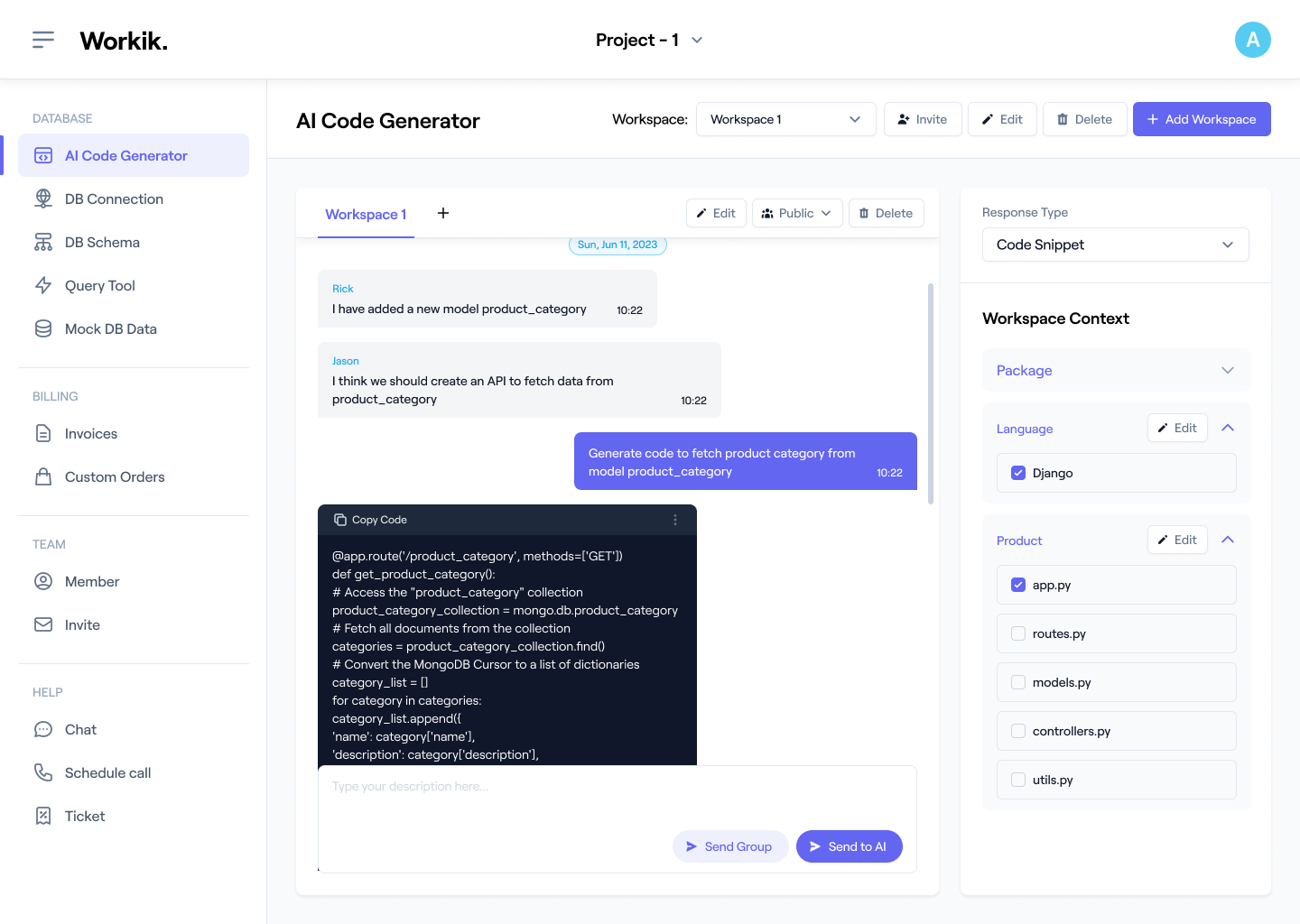

Expand
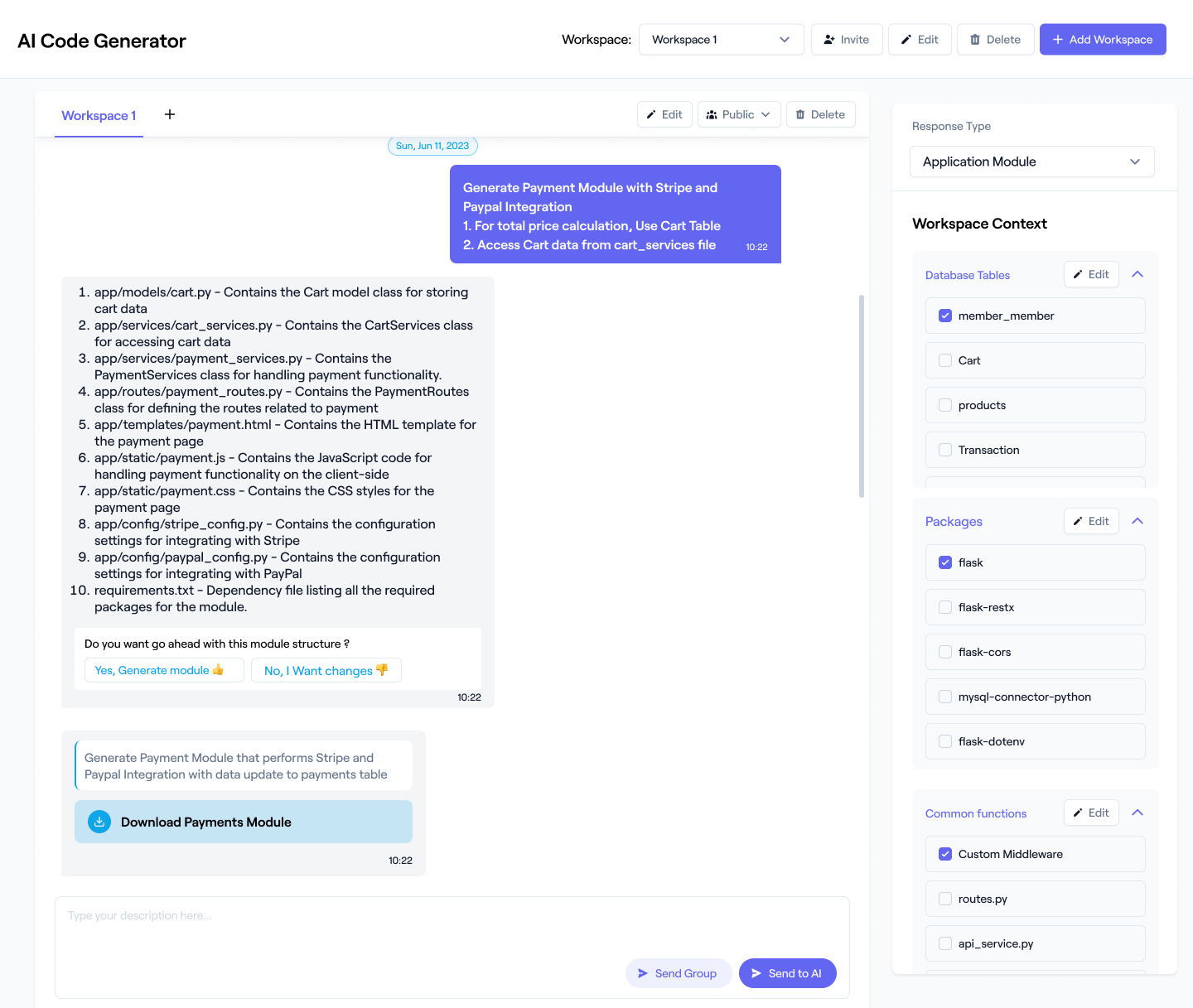

Expand
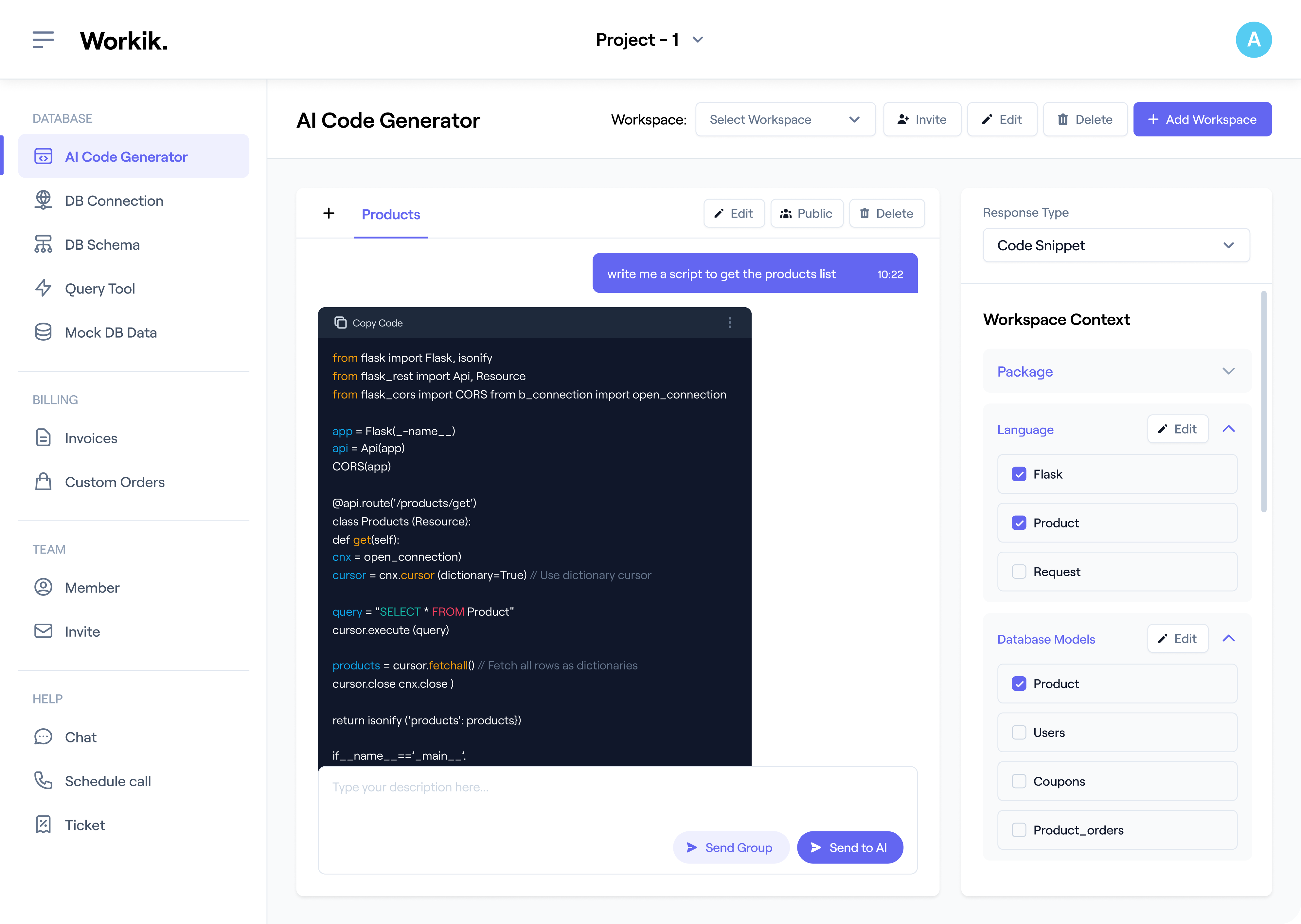

Expand


Expand
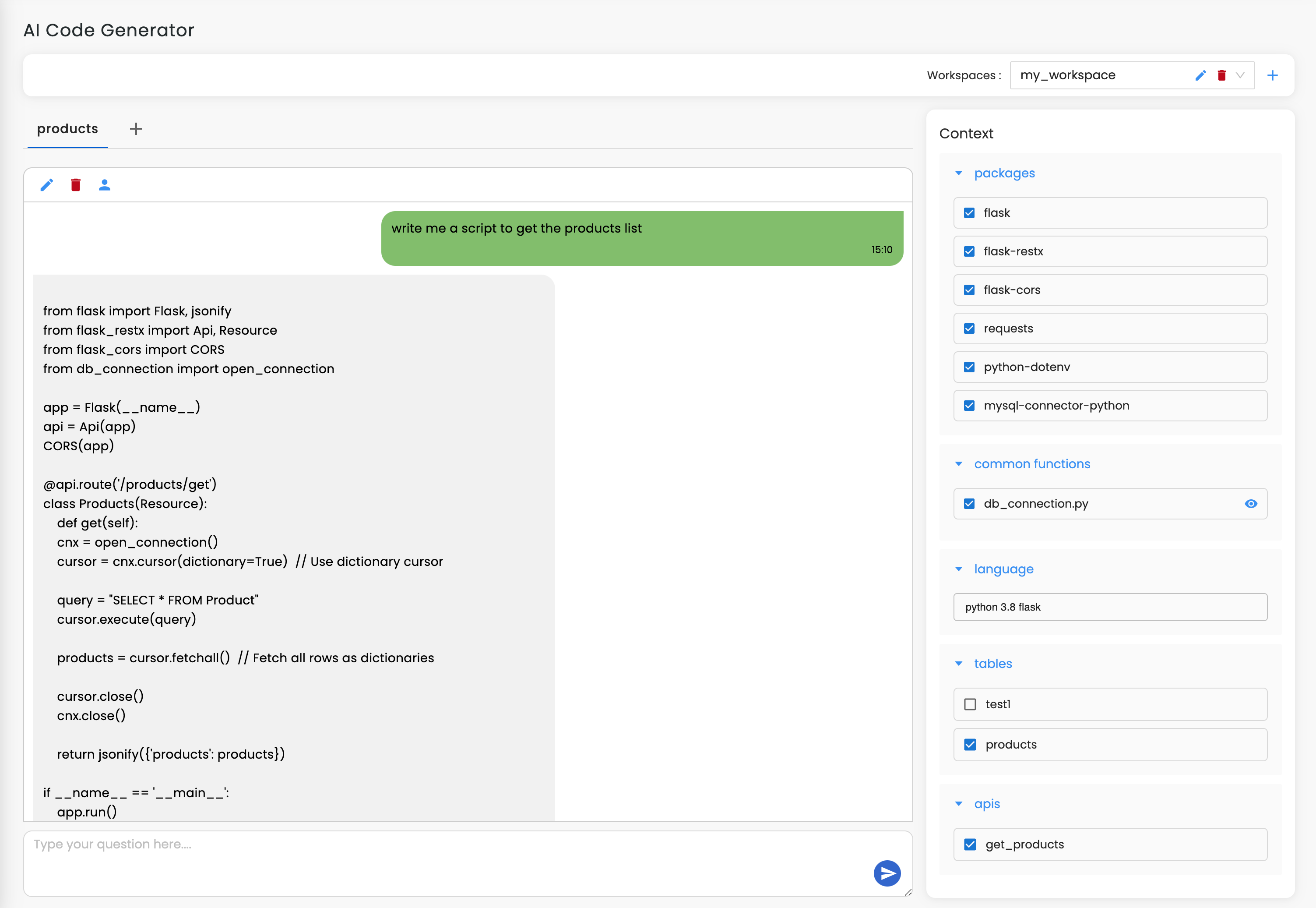

Expand


Expand


Expand


TESTIMONIALS
Real Stories, Real Results with Workik
Workik’s Q# generator streamlined quantum algorithms for our simulations. It’s an essential tool for any quantum project.

Laura Hamilton
Quantum Developer
I could Generate optimized Q# circuits for quantum hardware integration—saving me weeks of development!

Akash Sethi
Research Engineer
Quantum cryptography was a breeze with Workik’s Q# code generator. It handles complex tasks beautifully.
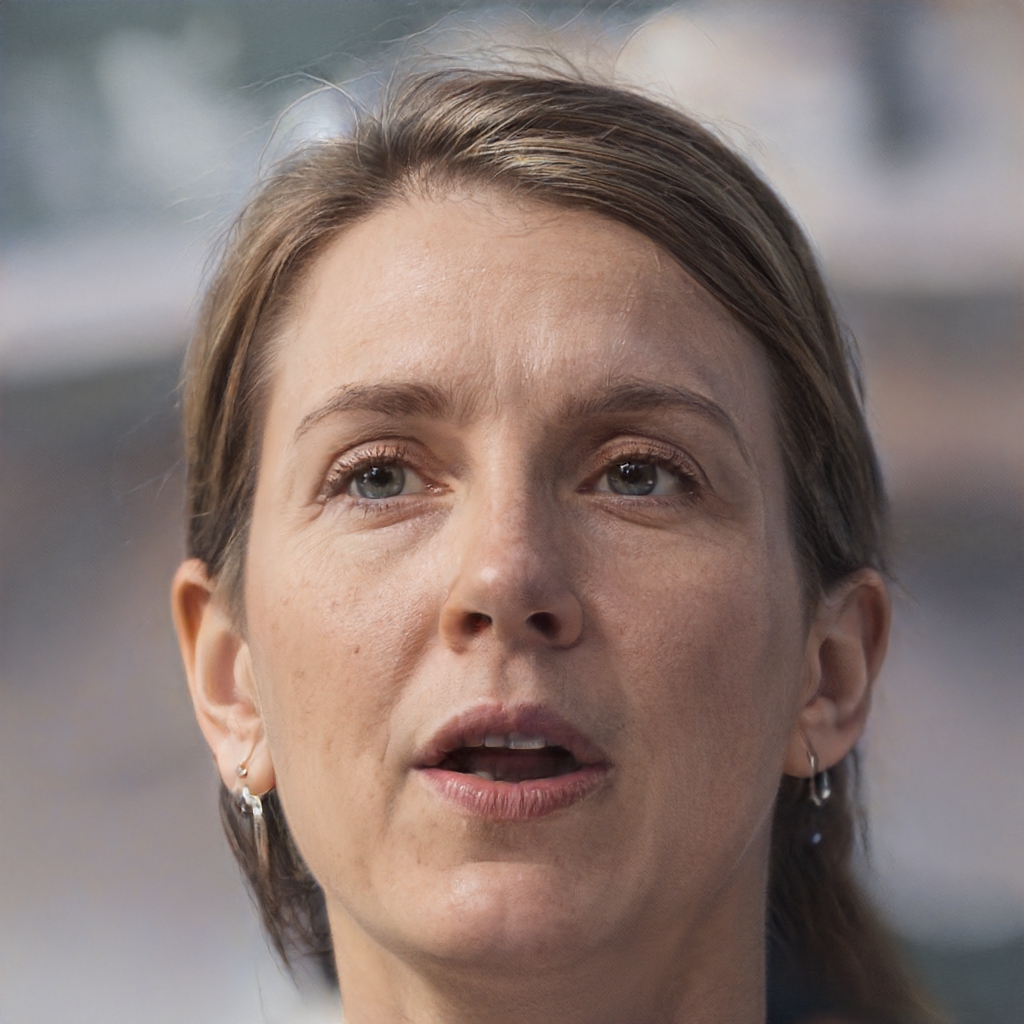
Julia Novak
Computational Scientist
What are the popular use cases of Workik's AI Q# Code Generator?


Popular use cases of Workik's AI in Q# development include, but are not limited to:
* Rapidly prototype quantum algorithms like Grover's search and quantum teleportation.
* Simplify quantum simulations for physics or chemistry with libraries like Quantum Chemistry and Azure Quantum.
* Build hybrid quantum-classical applications by integrating Q# with C#.
* Develop quantum error correction algorithms using Microsoft.Quantum.Diagnostics.
* Speed up quantum simulations for molecular models or quantum physics systems with AI-optimized configurations.
What kind of contexts can I add in Workik’s AI-powered Q# code generator?


Adding context is optional but helps the AI tailor its output for your specific Q# project. You can:
* Specify quantum frameworks like Quantum Development Kit or target backends like Azure Quantum.
* Provide quantum algorithm structures or simulation parameters for more accurate suggestions.
* Upload existing Q# project files or quantum libraries for customized code generation.
* Incorporate classical code files (C#) for hybrid quantum-classical applications.
* Define qubit counts, gates, or specific quantum operations for enhanced algorithm optimization.
What types of quantum applications can I develop with Workik AI?


Workik AI enables the development of various quantum applications, including quantum simulations, cryptography algorithms, optimization problems, and quantum machine learning. It also supports hybrid quantum-classical workflows for complex problem-solving.
How does Workik AI help in optimizing quantum circuit performance?


Workik’s AI analyzes your code, suggesting optimizations such as reducing inefficient gate usage, improving qubit allocation, and resolving bottlenecks. It ensures quantum algorithms run efficiently, leveraging tools like Microsoft.Quantum.
How can Workik AI assist in transitioning from simulation to real quantum hardware?


Workik AI fine-tunes your Q# code for deployment on quantum hardware platforms like Azure Quantum. It ensures algorithms are optimized for real devices, considering hardware-specific constraints like gate fidelity and error rates.
How does Workik AI help with quantum algorithm design in Q#?


Workik AI offers intelligent suggestions for gate structures, qubit operations, and quantum states. It optimizes algorithms like quantum teleportation and Shor’s algorithm using Microsoft.Quantum.Intrinsic, improving circuit performance and resource management.
How does Workik AI handle qubit management in Q#?


Workik AI optimizes qubit usage across gates and operations, ensuring efficient allocation. For larger algorithms, it suggests ways to reduce qubit usage or reuse qubits, improving performance and resource efficiency.
How can Workik AI assist with building hybrid quantum-classical applications?


Workik AI streamlines hybrid quantum-classical development by integrating Q# with C#. It suggests how to combine quantum operations with classical logic, optimizing resource usage and performance, ideal for workflows like cryptography and optimization.
Generate Code For Free

Q#: Question and Answer
Q# is a specialized quantum programming language developed by Microsoft for expressing quantum algorithms. It is part of the Quantum Development Kit (QDK) and integrates with classical languages like C# and Python to enable hybrid quantum-classical applications. Q# provides a rich set of libraries for quantum computation, such as quantum simulations, cryptographic algorithms, and error correction methods.
Popular frameworks and libraries used in Q# are:
Quantum Development Frameworks:
Quantum Development Kit (QDK), Azure Quantum
Quantum Libraries:
Microsoft.Quantum.Intrinsic, Microsoft.Quantum.Diagnostics
Simulations:
Quantum Chemistry Library, Microsoft.Quantum.Simulation
Quantum Error Correction:
Microsoft.Quantum.ErrorCorrection, Stabilizer Code Libraries
Testing:
Microsoft.Quantum.Simulation.Simulator, Resource Estimator
Deployment Tools:
Azure Quantum, Quantum Development Kit (QDK), Docker
Hybrid Quantum-Classical Integration:
Python, C#
Popular use cases of Q# include but are not limited to:
Quantum Algorithm Prototyping:
Rapidly prototype and validate quantum algorithms like Grover’s search and Shor’s algorithm.
Quantum Simulations:
Model molecular interactions or simulate quantum physics phenomena for research in chemistry and material science.
Quantum Cryptography:
Develop quantum encryption algorithms and protocols like quantum key distribution (QKD).
Hybrid Quantum-Classical Computing:
Integrate Q# with classical languages (C#, Python) for complex hybrid workflows.
Quantum Error Correction:
Implement quantum error correction codes to mitigate noise in quantum circuits.
Career opportunities and technical roles available for Q# professionals include Quantum Software Developer, Quantum Algorithm Researcher, Hybrid Quantum-Classical Developer, Quantum Cloud Engineer, Quantum Machine Learning Engineer, Quantum Physicist, and Quantum Computing Research Scientist.
Workik AI provides comprehensive assistance for Q# development, including:
Code Generation:
Automatically generates optimized Q# code for quantum circuits, algorithms, and gates.
Debugging:
Identifies and resolves issues in quantum algorithms using diagnostics like Microsoft.Quantum.Diagnostics.
Performance Optimization:
Suggests improvements for qubit allocation, gate optimization, and circuit design to improve algorithm performance.
Automation:
Automates tasks such as code documentation, qubit management, and simulation setup.
Quantum Simulation:
Assists with the configuration of quantum simulations, including molecular models and physical systems.
Hybrid Application Support:
Helps integrate Q# with classical languages (C#, Python) for hybrid quantum-classical applications.
Deployment Support:
Guides you through deploying quantum algorithms on cloud platforms like Azure Quantum.
Explore more on Workik
Get in touch
Don't miss any updates of our product.
© Workik Inc. 2026 All rights reserved.

